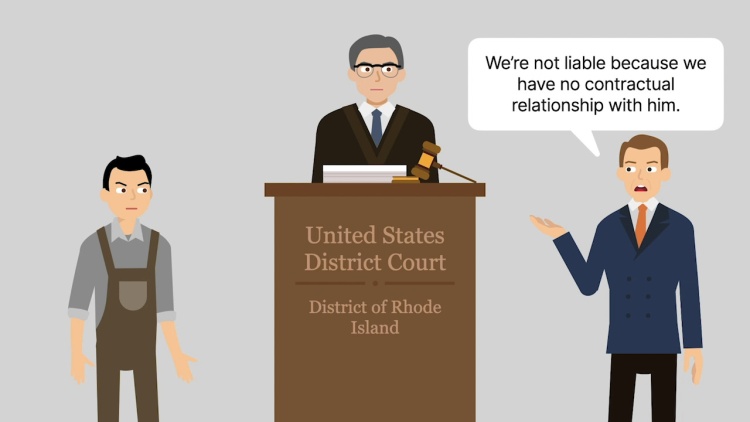Mason v. American Emery Wheel Works
United States Court of Appeals for the First Circuit
241 F.2d 906 (1957)

- Written by Sean Carroll, JD
Facts
Mason (plaintiff) was injured by an emery wheel manufactured by American Emery Wheel Works (AEWW) (defendant). Mason was working in Mississippi when the injury occurred and AEWW was a Rhode Island corporation. Mason brought suit in federal court in Rhode Island. AEWW filed a motion to dismiss based on a lack of privity as the emery wheel in question had passed through a number of owners before being bought by Mason’s employer. The district court granted AEWW’s motion to dismiss on the basis of Ford Motor Co. v. Myers, 117 So. 362 (Miss. 1928), which required privity to sue a manufacturer on a products liability claim. In doing so, however, the district court noted that the modern trend of states was not to require such privity and that it was reluctantly making its decision based on Ford. Mason appealed on the grounds of E.I. DuPont de Nemours & Co. v. Ladner, 73 So.2d 249 (Miss. 1954). In DuPont, the Mississippi Supreme Court did not expressly overrule Ford because it disposed of the issue on another ground. However, the Mississippi Supreme Court did state that “the principle seems now to be well established by the decision of many courts that a person who has had no [privity] with a manufacturer may nevertheless recover from such manufacturer for damages . . ..”
Rule of Law
Issue
Holding and Reasoning (Magruder, C.J.)
Concurrence (Hartigan, J.)
What to do next…
Here's why 907,000 law students have relied on our case briefs:
- Written by law professors and practitioners, not other law students. 47,100 briefs, keyed to 996 casebooks. Top-notch customer support.
- The right amount of information, includes the facts, issues, rule of law, holding and reasoning, and any concurrences and dissents.
- Access in your classes, works on your mobile and tablet. Massive library of related video lessons and high quality multiple-choice questions.
- Easy to use, uniform format for every case brief. Written in plain English, not in legalese. Our briefs summarize and simplify; they don’t just repeat the court’s language.





